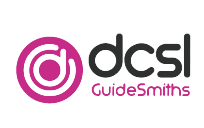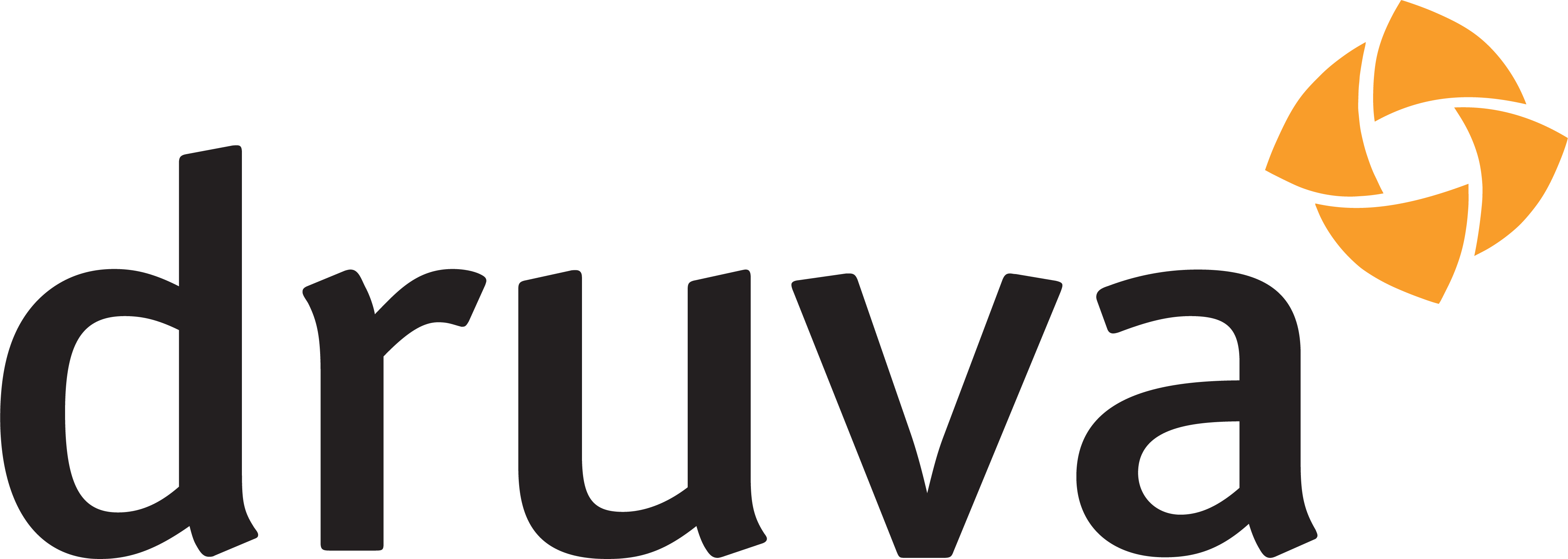How to Build an Email List: 15 Fresh and Easy Ways
Email list building strategies:
Email list building is one of the most valuable assets a B2B organisation can have.
It helps increase revenue and minimise customer churn, enabling you to build strong, lasting relationships with your clients while driving impressive conversions.
This guide shares innovative and actionable strategies to build an email list that boosts sales in new and existing markets.
Let’s start 👇
TL;DR
Building an email list isn’t about quantity, but attracting the right people.
Start by creating valuable content, optimising your sign-up forms, and offering incentives like lead magnets or webinars.
Use tools like Cognism to enrich and verify your contacts, ensuring your outreach stays compliant and effective.
The result?
A clean, high-intent list that fuels better engagement, stronger relationships, and more conversions.
1. Create fantastic content
High-quality content is the foundation of any successful email list building strategy.
Creating valuable, engaging, and shareable B2B marketing content is one of the most effective ways to attract email subscribers.
Your content, whether blog posts, videos, white papers, or case studies, should resonate with your target audience.
Why it works:
Prospects become familiar with your brand through demandism tactics and are more inclined to book a demo or sign up for your mailing list.
Example:
At Cognism, we’ve stopped gating our content. Instead, we use demand generation to build relationships and create brand loyalty.
One way we’ve done this is by making our CMO Alice de Courcy’s book, ‘Diary of a First-time CMO,’ available on our website for anyone to read.
Not only does it drive demand, but it also encourages new users to try our product and sign up for our newsletter for more valuable content.
Want to give it a read? Click to access Volume 1 and 2 👇
Additional tips:
- Offer exclusive content to subscribers, such as ebooks, guides, or industry insights.
- Write engaging blog posts or video tutorials, including opt-in forms for readers to subscribe to updates or additional resources.
- Ensure your content is visually appealing, easy to consume, and shareable to increase its reach.
- Use tools like Canva or HubSpot to create polished content that enhances credibility.
- Employ storytelling and visually appealing formats to keep readers hooked.
- Use Cognism’s B2B contact data to identify and reach out to key decision-makers in your industry, sharing your content directly with them 😉

Business Development Executive @DCSL GuideSmiths

2. Optimise signup forms for visibility
Embedded signup forms make it easy for your website visitors to share their emails with you. But their effectiveness depends on how you implement them.
Your email signup forms should be easy to find and quick to complete. Most sign-up forms are found in the website’s footer, sidebar, or after content.
Strategically placing these forms on your website and ensuring they’re intuitive to use is essential for B2B email list building.
The length of the opt-in form matters, too. While having more information about your prospects is great, it’s equally important not to overwhelm your visitors.
B2B buyers are especially busy professionals who might not have the luxury of spending several minutes filling out forms.
Therefore, stick to collecting basic details like name and email address. You can always enrich B2B records over time.
To make a solid email list, ensure that your form includes a clear and prominent call-to-action, inviting visitors to “Join 2,000+ other subscribers” or “Sign up now.”
But, most of all, your forms should be mobile-friendly, as a significant portion of traffic comes from smartphones.
Why it works:
A prominently displayed and user-friendly signup form minimises friction, making it easier for visitors to engage with your brand and take the desired action.
Example:
Slack’s homepage features a sleek, visually appealing signup form paired with a strong CTA (“Get Started”). The form is strategically positioned above the fold, requiring minimal effort from users to get started.
Additional tips:
- Use bold, contrasting colours for the form and CTA button to draw attention.
- Keep the form fields minimal—stick to essentials like name and email to simplify the process.
- To build credibility, add trust signals, such as “No credit card required” or “Trusted by over 10,000 businesses. “
- Strategically position forms on high-traffic areas of your site, such as the homepage, blog posts, or pricing page.
3. Set up a demo request form
If you’re wondering how to build an email list from scratch, a demo request form is your answer.
For B2B SaaS companies, a demo request form is a goldmine for building an email list. Visitors requesting a demo are typically high-intent leads, making them valuable additions to your email marketing database.
Why it works:
A demo request form targets users further along the buying process, allowing them to see your solution in action.
Example:
At Cognism, we have embedded demos on demand like this one 👇
Once users see how easy it is to build lists with Cognism, they will likely book a more in-depth demo.
Additional tips:
- Add a calendar integration (e.g., Calendly) so prospects can directly schedule a convenient time for the demo.
- Pre-fill fields for returning users to save them time.
- Include social proof, like “See how [Company Name] improved results by 200%.”
- Create separate forms for different buyer personas to customise the experience.
- Use an email list building tool like Cognism to find accurate contact information for prospects and integrate these email leads into your list after demo requests.
- Follow up with personalised emails, inviting users to subscribe for updates and tips related to your offerings.
4. Use pop-ups
When used correctly, pop-ups are an excellent way to capture email addresses. They grab attention and encourage visitors to take immediate action.
Sometimes, website visitors don’t go to the pages where you embed sign-up forms. Use exit-intent pop-ups to prevent them from leaving your site without signing up.
However, you must strike a balance. Don’t overwhelm your audience with too many pop-ups; add no more than one per page.
Exit-intent software solutions like Optinmonster, HubSpot, and Claspo can help you create exit-intent pop-ups.
With this strategy, you can build an email list with engaged and receptive contacts, enhancing the effectiveness of your email marketing efforts.
Why it works:
Pop-ups grab attention without requiring users to search for a sign-up form or offer.
Example:
OptinMonster’s exit-intent pop-ups capture leads about to leave the website by offering a discount.
/Email%20list%20building/OptinMonster-homepage.webp?width=672&height=475&name=OptinMonster-homepage.webp)
Additional tips:
- Use behaviour-triggered pop-ups, like when a user scrolls 50% of the page or spends 30 seconds on the site.
- A/B test pop-up designs, messages, and CTAs to optimise performance.
- Offer a special incentive, such as a discount or free guide, to encourage sign-ups.
- Use exit-intent pop-ups to capture users before they leave your site.
- Make sure your pop-ups have engaging headlines and concise copy.
5. Freebies, contests and giveaways
“I don’t like freebies,” said no one ever!
That’s why contests or giveaways will always draw people’s attention.
Offering giveaways, contests, or freebies is one of the best email list building strategies.
The more enticing your offer, the more likely users will subscribe.
To build a marketing email list for lead generation, add email submission as an entry requirement and capture prospect emails.
Besides, business decision-makers appreciate a bit of fun, too. B2B decision-makers are human, after all.
So gamification through contests and giveaways is an excellent way to make the sign-up process engaging and rewarding for them.
Why it works:
Freebies and giveaways provide immediate value and encourage users to share their contact information.
Example:
This strategy helped AppSumo grow its email signups from less than 50,000 to over 147,973 within the first ten months.
/Email%20list%20building/appsumo-data.webp?width=600&height=371&name=appsumo-data.webp)
The key is to always opt for audience-specific rewards to build your lead list of only potential future buyers.
For instance, you might offer contest winners free annual access to your product. Just ensure it’s something they genuinely desire.
Additional tips:
- Create a lead magnet, such as a checklist, whitepaper, or free tool, that solves a specific problem for your audience.
- Run a social media contest requiring participants to submit their email to enter.
- Use platforms like KingSumo or Rafflecopter to streamline your contest and manage entries.
- Promote giveaways across multiple channels, including social media, email, and your website.
6. Run referral programs
B2B buyers value referrals, especially when they come from trusted peers. So, take advantage of your existing contacts to expand your reach through a referral program.
Design a dedicated referral landing page where participants can quickly enter details, including email addresses, of those they’d like to refer.
Another great tactic for email marketing list building is creating unique referral codes. These can help you keep track of referrals.
For example, when a person scans your client’s QR code and enters their details, that person will automatically be counted as a referral by that specific client.
Once everything is set, start sending referral requests to your loyal clients. However, remember to keep the process easy for them; too many steps can discourage participation.
Why it works:
Word-of-mouth referrals are one of the most trusted forms of B2B marketing and a great way to build an engaged email list. They leverage personal connections to build credibility and influence purchasing decisions.
Example:
Here’s how Graphicolor does it:
Additional tips:
- Ensure that your landing page outlines eligibility rules and requirements
- Offer a double-sided reward system, such as discounts for the referrer and the referee.
- Communicate the referral process and rewards through email and in-app notifications.
- Use referral software like ReferralCandy, PostAffiliatePro, or Tapfiliate to automate and track referrals.
- Highlight your referral program in welcome emails or post-purchase messages.
- Offer discounts, freebies, or exclusive perks for successful referrals.
7. Use email list building tools
Building an email list from scratch can be challenging. The easiest way is with email list building services and tools. (Not by buying an email marketing list 👀)
Sales intelligence platforms like Cognism let you build targeted contact lists with leads’ emails and mobile numbers. This global B2B data follows stringent privacy protocols and complies with the GDPR and CCPA.
Additionally, you can use intent data and sales triggers embedded in Cognism’s platform to build email lists of prospects more likely to respond to your outreach.
Here’s how Cognism makes B2B email list building easy:
- Sales Companion for personalised access to in-depth account data to ensure fresh and fast outreach.
- Phone-verified cell phone numbers to help you connect with 87% of your list.
- Exclusive on-demand verified cell phone and email data set Diamond Data®.
- Unrestricted access to person and company-level data*.
- Instant and scheduled CRM enrichment and on-demand CSV enrichment.
- Intent data by Bombora.
- International coverage: EMEA, NAM, APAC.
- Easy platform setup.
- Integrations with CRMs and sales engagement tools.
- Focus on quality GDPR and CCPA-compliant data.
- Database checked and cleaned against global DNC lists.
- Find prospects using ChatGPT-style textual or voice prompts with Cognism AI Search.
- Fast and friendly support team.
*Subject to a generous fair usage policy.
Why it works:
List building tools and services save time and ensure you have the correct contact data to reach key decision-makers.
Example:
Cognism helped Protolabs to find niche audiences and have a consistent email deliverability rate of 95-98%.

Digital Marketing Specialist @Protolabs

Additional tips:
- Integrate email marketing platforms with CRM systems to track and nurture leads effectively.
- Use tools like HubSpot, Marketo, or ActiveCampaign to segment leads and send targeted campaigns.
- Automate follow-ups with email sequences triggered by specific actions (e.g., downloading an ebook).
- Analyse marketing lead data to identify trends and refine your strategies.
- Employ tools like Cognism to automate lead generation and ensure data accuracy with lead enrichment.
- Use analytics tools to measure performance and optimise strategies.
8. Always have a CTA
A call-to-action (CTA) is crucial to any email marketing list building strategy.
Without clear instructions, visitors may leave your site without subscribing, which you want to avoid when building your email list.
Why it works:
A clear and actionable CTA ensures users know exactly what to do next and encourages immediate action.
Example:
HubSpot’s blog posts often include CTAs like “Download the Free Guide” or “Get Started with HubSpot” that align with the content topic and target specific user needs.
They strategically place these CTAs within the content and at the end of posts to ensure visibility.
/Email%20list%20building/hubspot-cta.webp?width=524&height=550&name=hubspot-cta.webp)
Additional tips:
- Use action-oriented language like “Subscribe Now” or “Get Your Free Guide.”
- Create urgency with phrases like “Limited Time Offer” or “Sign Up Today.”
- Position CTAs prominently, such as at the end of blog posts, within email campaigns, or on product pages.
- Ensure your CTA aligns with the user’s journey stage (e.g., “Learn More” for awareness vs “Buy Now” for decision).
9. Utilise live chat or chatbots
A quick win in lead generation email list building is utilising live chat and chatbots.
They offer immediate, personalised interaction with website visitors and are excellent tools for engaging them and collecting email addresses in real-time.
Through automated or real-time conversations, businesses can guide users toward newsletter sign-ups or special offers, converting them into valuable subscribers.
You can integrate this feature into your website with tools like Botsify, Chatra, ManyChat, and ChatBot.
But remember, timing is crucial when you ask for email addresses via chat. Visitors might hesitate or decline if you request them too early in the conversation. It’s essential to build rapport and deliver value before making the request.
Why it works:
Real-time support increases trust and reduces drop-off rates.
Example:
Salesloft’s chatbot engages users by asking qualifying questions and scheduling meetings for sales reps.
/Competitors%20and%20other%20tools/Still%20to%20approve/Salesloft/salesloft-platform-overvew.webp?width=830&height=527&name=salesloft-platform-overvew.webp)
Additional tips:
- Use trigger-based prompts at specific moments during the conversation, such as a bot that appears when a user spends more than 30 seconds on your pricing page.
- Use live chat during business hours and switch to an AI chatbot after hours.
- Collect email addresses through the chatbot for follow-up.
- Train your chatbot to provide answers to common questions and direct users to relevant resources.
- Use chatbots to prompt visitors to subscribe during conversations.
- Don’t be pushy. Use simple language and get straight to the point.
10. Explore QR codes for offline engagement
QR codes bridge the gap between offline and online marketing, offering a seamless way to build an email list without a website.
This method is especially effective for engaging audiences at in-person events.
Why it works:
QR codes provide a fast and easy way for users to access online content.
Example:
Starbucks uses QR codes on its promotional materials to drive app downloads and sign-ups for its rewards program.
Additional tips:
- Include QR codes on digital business cards, posters, and product packaging.
- Link QR codes to a dedicated landing page or sign-up form for better tracking.
- Use QR codes in offline events, like trade shows, to capture attendee information.
- Add a clear CTA near the QR code, such as “Scan to get 10% off your first purchase.”
- Place QR codes on flyers, posters, or event materials.
- Offer a freebie or discount for those who scan and subscribe.
11. Create a newsletter
But how do you build an email list for free?
Newsletters are key.
They’re a fantastic way to engage subscribers and keep them informed about your brand, but you must ensure consistency and value when utilising them for list building.
Why it works:
Consistent communication helps build trust and keeps your brand top of mind.
Example:
Cognism’s newsletter, The Loop, keeps its audience hooked with B2B marketing insights and trends from industry leaders.
It links back to the B2B marketing podcast of the same name, which is another clever way to build email lists.
🎧Listen to The Loop podcast on Captivate.fm
Additional tips:
- Create gated content, such as exclusive guides, to incentivise sign-ups.
- Use visually appealing designs with minimal text to encourage reading.
- Personalise newsletters with dynamic content based on user preferences.
- Include a CTA in every newsletter to drive traffic to your website or offers.
- Offer exclusive updates, industry news, or insider tips through your newsletter.
- Promote your newsletter on social media and your website to attract new subscribers.
- Ensure you comply with GDPR marketing laws and include an option for subscribers to opt-out.
12. Host webinars
Webinars provide an interactive platform for sharing knowledge and building your email list. It’s also a great form of lead generation.
Why it works:
Interactive formats like webinars foster deeper connections with prospects. Moreover, webinars are an effective list-building strategy that helps you establish authority in your industry.
Example:
LinkedIn hosts webinars on topics like marketing and recruitment strategy, offering attendees actionable insights and free templates.
Additional tips:
- Promote webinars across social media, email, and your website.
- Use tools like Zoom or WebinarJam for a seamless attendee experience.
- Include live Q&A sessions to address attendee questions and showcase your expertise.
- Follow up with attendees via email, inviting them to subscribe for future updates.
- Require email registration for webinar access.
- Use Cognism to promote your webinar to the right audience and gather accurate attendee data.

SDR Manager EMEA @Druva

13. Invest in ads and SEO
Paid ads and organic search optimisation drive targeted traffic to your lead capture pages.
By combining the two, you’ll experience consistent growth when building your email list.
Why it works:
Ads provide immediate results, while SEO builds long-term, sustainable traffic.
Example:
Cognism runs paid ads and utilises money keywords to attract website traffic.
Additional tips:
- Focus on high-intent keywords like “best [your product] tool.”
- Retarget website visitors with personalised display ads.
- Optimise landing pages with fast load times and clear CTAs.
- Use tools like Google Analytics to monitor and improve ad performance.
- Use Google Ads, Facebook Ads, and LinkedIn Ads to target specific audiences.
- Optimise your website and content for relevant keywords to attract organic traffic.
- With Cognism’s data, you can refine your ad targeting and maximise ROI.
14. Use Cognism
Stop asking how to build an email list and start building fast, reliable, high-quality lists with Cognism. With its AI-powered features, you can:
- Access reliable, GDPR-compliant contact data.
- Segment your audience for personalised campaigns.
- Automate lead generation and save valuable time.
- Ensure your database is always up-to-date and relevant.
By integrating Cognism into your email list-building strategy, you’ll achieve faster growth in new markets (especially Europe!) and higher engagement rates!
Take your email list building to the next level. Sign up for a demo 👇
/CTAs%20(SEO)/Diary%20of%20a%20CMO%20CTA%20Banner-WEBP.webp?width=672&height=257&name=Diary%20of%20a%20CMO%20CTA%20Banner-WEBP.webp)
/Email%20list%20building/slack-homepage.webp?width=672&height=383&name=slack-homepage.webp)
/Email%20list%20building/graphicolor-homepage.webp?width=672&height=377&name=graphicolor-homepage.webp)
/Email%20list%20building/unnamed%20(6).webp?width=672&height=509&name=unnamed%20(6).webp)
/Email%20list%20building/image-png-Jan-17-2025-12-41-53-5763-PM.webp?width=672&height=323&name=image-png-Jan-17-2025-12-41-53-5763-PM.webp)
/Email%20list%20building/linkedin-webinars.webp?width=672&height=532&name=linkedin-webinars.webp)
/Email%20list%20building/money-keywords.webp?width=672&height=363&name=money-keywords.webp)
/CTAs%20(SEO)/cognism-lead-generation-demo-webp.webp?width=672&height=258&name=cognism-lead-generation-demo-webp.webp)
![Lead Generation Companies & Services [+How to Choose]](https://www.cognism.com/hubfs/Updated-resource-card-2.png)
/SMB%20ABM/Blog_Image_How%20SMBs%20Can%20Run%20Enterprise-Level%20ABM%20on%20a%20Lean%20Budget%20%20Resource%20Card.webp)
/B2B%20marketing%20predictions/b2b-marketing-trends-2026-card.webp)